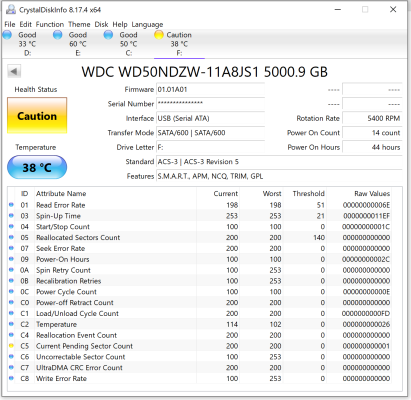prime
Skilled
I keep backup of my not so important data on 2.5”/3.5” HDDs. Since data does not need regular update, I don’t take out HDDs often and when I take them out (once a year or so), it gets some error.
I bought This 5TB WD passport 2.5” external USB HDD in Oct’21. It shows less than 45 hours but started showing error. Fortunately, it is under warranty (will WD replace it with this error?). Please guide WD warranty process, I have not used it since 2015 or so.
Are SSDs better for this kind of use? How long do they last if not used?
I bought This 5TB WD passport 2.5” external USB HDD in Oct’21. It shows less than 45 hours but started showing error. Fortunately, it is under warranty (will WD replace it with this error?). Please guide WD warranty process, I have not used it since 2015 or so.
Are SSDs better for this kind of use? How long do they last if not used?



